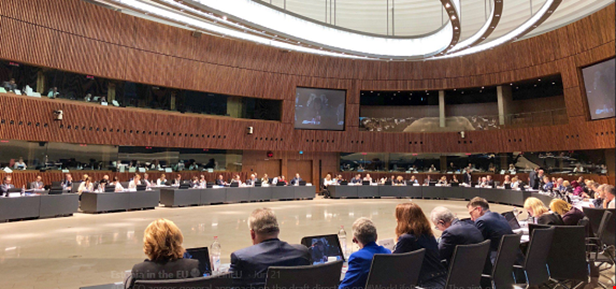EPF calls on EU Member States to put patients first and make progress on HTA negotiations

In the run-up to the important EPSCO Council meeting in which the European Commission’s proposal on HTA was to be discussed, EPF sent a letter to national ministries of health and their representatives in Brussels, calling on member states to “put patients first and make progress on HTA negotiations”.
We hoped that Member States would be able to set aside their debates about competencies and instead focus on what matters for European patients and citizens: achieving a European-level HTA framework that is effective, efficient and patient-centred. One which builds on the achievements between national authorities to date and adds to them.
As expected, in the course of the EPSCO Council meeting divergencies of views among Member States emerged. Member States with more advanced HTA systems – such as France and Germany – tend to be wary of the proposal mainly because of the foreseen mandatory uptake of joint clinical assessments, while smaller Member States and those with HTA systems in a more formative stage – including Belgium, Romania and the Baltic countries – tend to support the legislative proposal and the mandatory uptake requirement.
We believe that without ensuring uptake of joint work in national assessments, there will be no progress or added value for public health, beyond what is already achieved through voluntary collaboration in EUnetHTA. We also believe that through a constructive dialogue it will be possible to agree on a solution that both ensures the integration of joint assessments in national assessments without duplicating, and still gives each Member State the possibility to address their national specificities.
See our full position on the legislative proposal here.
The Council eventually concluded that Germany and France will start to draft an alternative proposal for EU-level HTA, which does not include mandatory uptake. We hope this will not result in a de facto blocking of the Commission’s proposal. The Council’s position should certainly include proposals on how to encourage take-up of joint work in order to overcome the current state of duplication and fragmentation and progress beyond the status quo. It should also include the appropriate structures and provisions to embed meaningful patient involvement into all processes and governance.
The European Parliament, meanwhile, is developing its own position on the HTA proposal. EPF has been actively engaged in the discussions, monitoring activities in the relevant committees and making contributions. We are aware our work is not over yet as the Austrian Presidency has committed to take forward the topic to facilitate some additional constructive debates to overcome the most challenging aspects embedded in the proposal. It looks to be a busy summer no matter how you look at it.
Contact persons:
Kaisa Immonen, EPF Director of Policy
Valentina Strammiello, EPF Programme Manager
